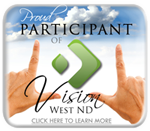The individuals who govern a nonprofit organization are, by their very nature, very passionate about their cause, but their business management experience doesn't always match their passion.
These individuals, who may be spectacular in getting the organization off the ground, will often find themselves faltering as their nonprofit reaches the next level. A common response is to hire an executive director to take care of day-to-day business activities so the board members can remain focused on the advocacy activities that drew them into the organization in the first place.
The danger in allowing an executive director free reign is, of course, a lack of accountability. And should the executive director turn out to be unscrupulous, the board members find themselves in a worse situation than they had before!
“DLN’s Board Development and Training Services are usually in conjunction with strategic planning. Our training strengthens a non-profit organization so they can competitively function in the world of business.”














